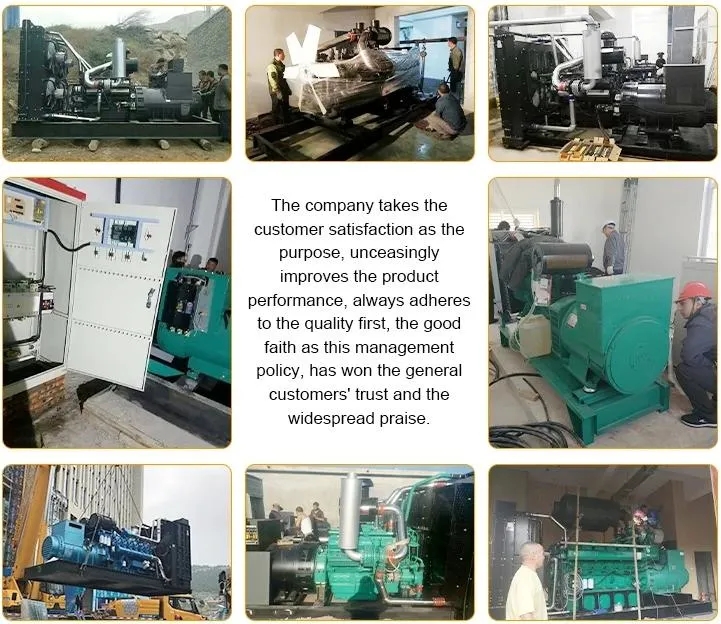Introduction
Diesel generators are crucial power sources that provide backup electricity in a variety of settings, ranging from residential homes to industrial facilities. One of the challenges faced by diesel generators is their performance in low-temperature environments. In regions with cold climates or during winter months, the operation of diesel generators can be compromised due to issues such as fuel gelling, battery performance degradation, and lubrication challenges. This article explores the importance of diesel generators for low-temperature operation, the key challenges they face, and strategies to ensure their reliability and efficiency in such challenging environments.
Importance of Diesel Generators for Low-Temperature Operation
Diesel generators play a critical role in ensuring continuous power supply in areas prone to power outages or where grid electricity is unreliable. In regions with cold climates, the need for reliable power becomes even more essential, as extreme weather conditions can lead to power disruptions that can have serious consequences for individuals, businesses, and critical infrastructure. Diesel generators offer a dependable source of backup power that can be relied upon during emergencies or when grid power is unavailable.
In low-temperature environments, diesel generators are often used in remote locations such as mining sites, oil and gas facilities, and telecommunications towers. These applications require robust and reliable power solutions that can withstand the challenges posed by cold weather conditions. Diesel generators are preferred in such settings due to their high power output, durability, and ability to operate continuously for extended periods.
Challenges of Operating Diesel Generators in Low-Temperature Environments
While diesel generators are known for their robustness and reliability, they can face several challenges when operating in low-temperature environments. Some of the key challenges include:
1. Fuel Gelling: Diesel fuel can thicken and form gel-like substances in cold temperatures, which can clog fuel filters and fuel lines, leading to engine stalling and reduced performance. Fuel gelling is a common issue in regions with sub-zero temperatures, where untreated diesel fuel is susceptible to solidifying.
2. Battery Performance Degradation: Cold temperatures can cause the electrolyte in batteries to thicken, reducing their ability to deliver sufficient power to start the generator. Cold weather can also increase the internal resistance of batteries, making it harder for them to provide the required voltage for engine cranking.
3. Lubrication Challenges: Cold temperatures can cause the engine oil in diesel generators to thicken, affecting its flow and lubrication properties. Inadequate lubrication can lead to increased friction, wear, and potential damage to engine components, reducing the overall efficiency and lifespan of the generator.
4. Starting Issues: Cold weather can make it harder for diesel engines to start, as the fuel may not vaporize properly, leading to incomplete combustion and rough engine operation. Starting issues can result in extended cranking times, increased fuel consumption, and potential damage to the starter motor.
Strategies for Ensuring Reliable and Efficient Operation of Diesel Generators in Low-Temperature Environments
To overcome the challenges associated with operating diesel generators in low-temperature environments, several strategies can be implemented to ensure their reliability and efficiency. These strategies include:
1. Winterized Fuel: Using winter-grade diesel fuel that contains additives to prevent gelling is essential for ensuring the smooth operation of diesel generators in cold climates. Winterized fuel has a lower cloud point and pour point, allowing it to remain liquid at lower temperatures and flow easily through fuel systems.

2. Fuel Heating Systems: Installing fuel heating systems such as electric fuel heaters or fuel recirculation systems can help prevent fuel gelling by maintaining the fuel at optimal temperatures. These systems heat the fuel before it enters the engine, ensuring proper combustion and preventing fuel system blockages.
3. Battery Heaters: Equipping diesel generators with battery heaters or insulation blankets can help maintain the battery temperature and prevent performance degradation in cold weather. Battery heaters ensure that the electrolyte remains fluid, allowing the battery to deliver the necessary power for engine starting.
4. Engine Block Heaters: Using engine block heaters to preheat the engine oil and coolant before starting the generator can improve cold-weather starting performance and reduce wear on engine components. Engine block heaters ensure that the engine reaches operating temperature quickly, enhancing fuel combustion efficiency and reducing emissions.
5. Synthetic Engine Oil: Using synthetic engine oil with a low viscosity rating suitable for cold temperatures can improve lubrication performance and flow characteristics in diesel generators. Synthetic oils offer better cold-start properties, reduced friction, and enhanced wear protection, ensuring optimal engine performance in low-temperature conditions.
6. Cold-Weather Starting Aids: Installing cold-weather starting aids such as glow plugs or intake air heaters can assist with engine starting in cold climates by preheating the combustion chamber or intake air. These aids help vaporize the fuel more effectively, improve combustion efficiency, and reduce emissions during cold starts.
7. Regular Maintenance and Inspections: Conducting regular maintenance checks and inspections on diesel generators is crucial for identifying and addressing potential issues that may arise in low-temperature environments. Checking fuel quality, battery health, lubrication levels, and electrical connections can help prevent downtime and ensure the reliable operation of the generator.
Conclusion
Diesel generators are indispensable power sources that provide backup electricity in various applications, including remote locations and critical infrastructure. Operating diesel generators in low-temperature environments presents unique challenges that can affect their reliability and efficiency. By implementing strategies such as using winterized fuel, installing heating systems, and conducting regular maintenance, the performance of diesel generators in cold climates can be optimized to ensure uninterrupted power supply. As Portable diesel generator for temporary power supply for reliable backup power continues to grow, addressing the challenges of low-temperature operation is essential to meet the power needs of diverse industries and communities. Diesel generators remain a reliable and robust solution for powering operations in challenging environments, and with proper care and maintenance, they can deliver consistent performance even in the coldest conditions.
